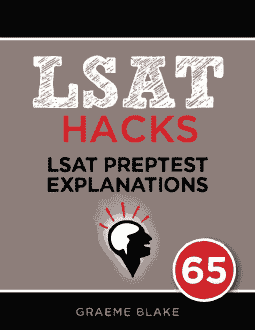DISCUSSION: The passages discuss blackmail. The first passage discusses blackmail in our current North American legal system. The second passage discusses blackmail in the Roman system. The passages don’t have much in common beyond that.
___________
- Only the first passage mentions triangular transactions (line 22). It doesn’t say that all triangular transactions are illegal. It only says blackmail is illegal because it is triangular.
- Rome didn’t have a right to free speech.
- CORRECT. Passage A discusses blackmail in modern North America. Passage B discusses blackmail in Ancient Rome.
- Passage A doesn’t discuss the history of blackmail. Passage B discusses blackmail in one historical period (ancient Rome), but that doesn’t make passage B a complete history of blackmail in every time period.
- This only covers passage A. Ancient Rome (passage B) didn’t even have blackmail, as such


Hi Graeme! For E, I think passage A does not talk about why no explanation of the illegality of blackmail exists. It just mentions the fact that there is no such explanation, the consequence of it, and how we can make one.
I’d argue that the first paragraph of (A) does provide one reason for why no good explanation of the illegality of blackmail exists.
Lines 4-6 describe something the author calls “the heart of the problem”. The “problem” that these lines are referring to is in lines 2-3: no one has yet adequately explained why blackmail ought to be illegal.
The author deems the lack of explanation for the illegality of blackmail to be an issue, and then indicates that the nature of that issue is that the two acts that comprise blackmail are legal acts separately, but illegal when combined. So, I think it’s fair to say that (E) is a good characterization of (at least the introductory paragraph) of Passage A.